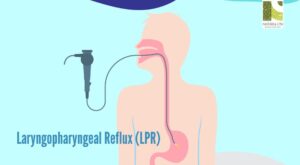When Memories Fade: The Truth About Alzheimer’s and What You Can Do

Alzheimer’s disease, a progressive neurodegenerative disorder, is the most common cause of dementia worldwide. It affects memory, thinking, behavior, and eventually interferes with daily tasks. While it primarily affects older adults, early-onset cases can occur before age 65.
What Is Alzheimer’s Disease?
Alzheimer’s disease is marked by abnormal accumulations of proteins in and around brain cells—specifically beta-amyloid plaques and tau tangles. These changes lead to the death of brain cells and a gradual shrinkage of brain tissue, impairing cognitive function.
According to the World Health Organization (WHO), over 55 million people live with dementia globally, with Alzheimer’s accounting for 60–70% of cases.
What Are the Risk Factors?
- Age: The strongest known risk factor. Most cases are diagnosed in people aged 65 and older.
- Genetics: Presence of the APOE-e4 gene increases risk, although not everyone with this gene will develop Alzheimer’s.
- Family History: Having a parent or sibling with Alzheimer’s increases risk.
- Cardiovascular Health: High blood pressure, diabetes, obesity, and smoking can raise risk.
- Lifestyle Factors: Poor sleep, physical inactivity, low educational levels, and lack of social engagement are associated risks.
- Traumatic Brain Injury (TBI): A history of head injuries may elevate susceptibility.
Signs and Symptoms
Alzheimer’s symptoms develop slowly and worsen over time. Common early and late-stage signs include:
- Early Stage:
- Forgetting recent events or conversations
- Misplacing items frequently
- Difficulty planning or solving problems
- Confusion with time or place
- Moderate Stage:
- Mood changes and withdrawal
- Trouble recognizing family or friends
- Repetitive questioning
- Difficulty with daily tasks
- Late Stage:
- Severe memory loss
- Inability to communicate
- Physical decline
- Dependence on others for care
Stages of Alzheimer’s Disease
- Preclinical Alzheimer’s (no symptoms, but brain changes begin)
- Mild Cognitive Impairment (MCI) due to Alzheimer’s
- Mild Stage: Memory loss begins to affect daily life
- Moderate Stage: Behavioral changes and significant memory loss
- Severe Stage: Loss of ability to respond to the environment or control movement
Diagnosis
There is no single test. Diagnosis is based on:
- Detailed medical history
- Mental status testing (e.g., MMSE)
- Brain imaging (MRI, CT, or PET scans)
- Blood tests to rule out other causes
- In some cases, cerebrospinal fluid testing for beta-amyloid or tau
Treatment and Management
While there is no cure for Alzheimer’s, several treatments can ease symptoms and improve quality of life:
- Medications:
- Cholinesterase inhibitors (Donepezil, Rivastigmine)
- NMDA receptor antagonists (Memantine)
- New FDA-approved drug Lecanemab targets beta-amyloid buildup
- Lifestyle Interventions:
- Brain-healthy diet (e.g., Mediterranean or MIND diets)
- Regular physical activity
- Mental stimulation (puzzles, reading, learning)
- Social engagement and therapy
- Caregiver Support: Education, counseling, and respite care are crucial.
Preventive Strategies
While there is no guaranteed way to prevent Alzheimer’s, research suggests that the following may reduce risk:
- Managing hypertension, diabetes, and cholesterol
- Maintaining a balanced diet
- Staying mentally and socially active
- Getting quality sleep
- Avoiding smoking and excess alcohol
Alzheimer’s is not just a disease of memory loss—it deeply impacts families, caregivers, and the social fabric around the patient. Early awareness, regular screenings, and lifestyle modifications can make a meaningful difference in reducing risk and managing progression.
Stay informed. Stay engaged. And let us all strive to create dementia-inclusive communities.
References :
1. Alzheimer’s Disease
2.10 Early Signs and Symptoms of Alzheimer’s and Dementia
3.Alzheimer’s Disease Fact Sheet
4, Signs and Symptoms of Alzheimer’s





